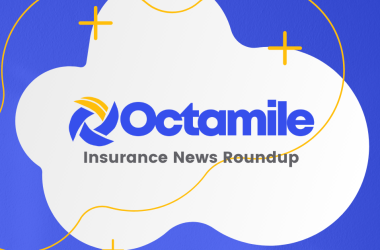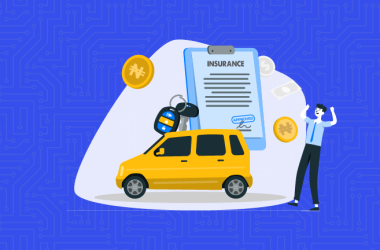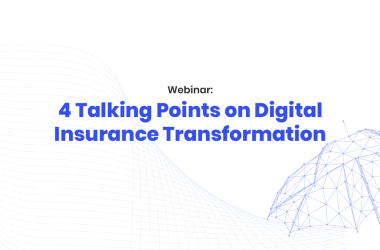The need to move around comfortably has gradually shifted the need for owning cars from being a luxury to being a necessity; this has also increased the number of ride-hailing and car-sharing services, which only means a rapidly changing market for insurers and consumers.
This increase of cars on the road created by this need would eventually lead to fewer insured cars. In fact, as of February 2021, According to the data released by the National Intelligence agency, only 2.72 million vehicles in Nigeria have valid insurance covers, while data by the National Bureau of Statistics estimated Nigeria’s vehicle population to be 11.76 million.
As the situation created opportunities for the insurers, it has also made their jobs harder, which has led to the need for auto insurance underwriters to deal with the new influx of data. Hence, risk evaluation and underwriting decisions have become more complicated by the unique exposures and data sources, making it more expensive and less efficient than it should be, especially when customers expect faster and more accurate quotes.
What is Auto-Insurance Underwriting?
Auto Insurance Underwriting refers to how an insurance company calculates its risk and decides that providing car insurance to a person would be profitable. An auto insurance underwriter is a trained professional who calculates this risk. These underwriters rely heavily on computer programs and algorithms to decide how risky a driver would be to the insurance company. Underwriters rely on information that includes the Driver’s driving history, vehicle type, vehicle history, education level, etc.

Factors Influencing Evolution of the Underwriting Process
- Customer’s Behaviours: With the exposure of consumers to technology, especially e-commerce and Fintech, Insurers are saddled with deploying new digital methods to create a better experience for customers buying insurance. The most important thing more insurers seek to do is reduce clients’ insurance application waiting time by at least 95%, as reported by Quantiphi.
- Big Data and Technology: Most times, data received by underwriters (both humans and AI-powered underwriters) are unstructured and are available in various formats. Extracting these data sources actively reduces the efficiency of the underwriter, increases the processing time and sometimes leads to a poor risk assessment. Therefore, technology needs to underwrite and use real-time driver behaviour accurately.
- Competition: Major industries within Africa, including Insurance and Fintech, are rapidly evolving. More insurance businesses have to respond quickly to the changing market; otherwise, they are at risk of losing to competitors in the market.
- COVID-19 pandemic: Various data has shown that the COVID-19 pandemic made many people think about insurance more than ever, and due to the pandemic, Insurance companies needed a way to evade the physical meetings and applications. The electrical applications that were seen as good to have in the past became important as insurers needed a more digital, less invasive process, providing coverage quickly while covering insurers’ risks.
Major Car Insurance Underwriting Challenges and Solutions
Insurance Fraud: Insurance fraud is one of the biggest problems facing auto insurance underwriting in Africa. According to the Guardian, the insurance industry may be losing about N530M yearly to car insurance evasion in Nigeria.
A common type of fraud experienced during auto insurance underwriting is incorrect vehicle history and valuation. With correct Vehicle history and Valuation data from Octamile, things like; If a car has been upgraded, If the person insuring the car is the registered owner of the vehicle, the original value of the vehicle etc. would be easy to detect. Auto insurance underwriting decisions can be made faster and more accurately with real-time data from multiple sources.
Lack of customer experience and personalisation: An underwriting process that allows for the personalisation of customers’ requests is a huge part of the customer’s user experience that CEO’s mentioned as a top priority according to PwC’s 23rd Annual global CEO’s survey. The personalisation of insurance is bound to improve the speed, user-friendliness and overall experience of a customer buying insurance.
A lack of effective underwriting process: For an underwriting process to be termed effective, it means that this process can effectively use real-time data sources to come to an underwriting decision as quickly as possible. This year, insurance companies need to create an effective information environment and key into using available Vehicle History and Valuation data to help underwriters make decisions faster and adjust quickly to any market change based on customer-defined triggers.
Misinformed Insurance Consumers: The ignorance of customers regarding specific insurance terms (for example, devaluation, DIV, etc.) that affect the final amount of claims accessible to them has been a significant issue with insurance underwriting decisions. Customers tend to get disappointed and insist that they were deceived when some of these terms are used by an insurance company to justify a lesser claims amount settlement than expected. This can be solved by deliberately educating customers at various points. The more knowledgeable customers are about insurance, from social media to billboards, the better for the industry.
Technology: The insurance industry is rapidly evolving, and the underwriting process needs to grow significantly. While some people are clamouring for a fully digital underwriting process, there are a significant number of instances in which the underwriter’s job is too complex for automation to take over. Humans and technology have been known to work together efficiently. In this instance, the combination of analytics with the professional insights of underwriters is key to delivering impeccable service.
This year, we look forward and expect to see more insurance companies leveraging technology and automation tools to manage the underwriting decision process more effectively. With an industry that is going through a significant digital transformation, it is essential that, as an insurer, you are constantly evolving and keeping up with trends in the industry.
With Octamile, you can deliver a seamless experience to your customers and leverage real-time Vehicle History and Valuation data to aid your underwriting process. Schedule a demo or email us at business@octamile.com.










